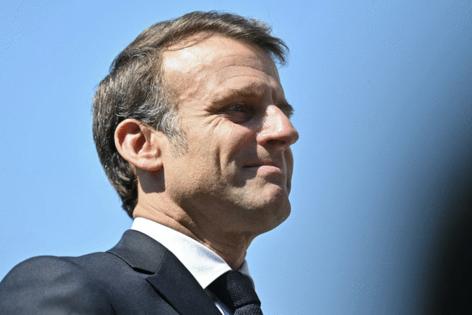Macron calls for stability with another government on the brink
Published in News & Features
PARIS — Emmanuel Macron called on France’s fractured parliament to deliver stability for the country rather than precipitate another government collapse.
The French president announced a new cabinet Sunday with his prime minister, Sebastien Lecornu, under intense pressure to defuse a long-running political crisis by passing a budget. But Macron’s refusal to offer broad concessions to political rivals has left his premier’s job in danger with opposition parties planning a no-confidence vote as soon as this week.
Lecornu, who was named in September, resigned last week and then reappointed on Friday, will speak to the National Assembly for the first time as prime minister on Tuesday to present his budget and explain how much of the president’s agenda he’s willing to sacrifice in order to remain in office.
“Everyone’s duty is to work for stability, not to bet on instability,” Macron said arriving in Egypt for the signing of a peace deal between Israel and Hamas. “I am asking everyone to get a grip and get to work in a demanding, respectful way.”
Lecornu must strike a delicate balance between feuding opposition parties if he is to survive a push by the far right and far left to force a snap election. To do that, the premier needs to convince both the Socialists and the Republicans to abstain in the coming no-confidence votes.
Senior officials from both of those groups over the weekend expressed anger at Macron’s refusal to accept how tenuous his position has become and to retract his most divisive policies. Olivier Faure, the Socialist leader, said in La Tribune Dimanche over the weekend that the most likely scenario was that Lecornu would fail.
Both of the premier’s predecessors — Michel Barnier and Francois Bayrou — were forced to resign following no-confidence votes prompted by budget disputes.
The Socialist Party is demanding wholesale reversals of Macron’s economic agenda, including suspending a pension reform that raised the retirement age, hiking taxes on the wealthy and allowing more deficit spending. Centrists and the center right oppose such radical steps, though it isn’t clear they would go as far as to vote against the government.
Another government collapse would likely spark more selloffs on French markets. The spread between the 10-year yield of French and German bonds — a key gauge of risk — has already risen to more than 80 basis points from as low as 65 in August and 43 before Macron called the snap elections last year that fractured parliament into acrimonious minority blocs.
French bonds were little changed on Monday, with the 10-year yield spread over German peers holding steady around 84 basis points. France’s CAC 40 rose in line with European peers.
Macron and Lecornu chose to reappoint several key ministers, including Roland Lescure as finance minister, Amelie de Montchalin as budget minister, and Jean-Noel Barrot overseeing foreign affairs. However, Laurent Nunez replaced Bruno Retailleau at the interior ministry after the latter led a pushback against Lecornu’s last attempt to form a government.
Retailleau’s party, the Republicans, said in a statement that the ministers who remained in Lecornu’s second government will no longer be part of the party.
Macron’s office said the new cabinet had eight people from civil society, including the former head of the national rail operator, Jean-Pierre Farandou, as labor minister.
Lecornu earlier warned that failure to adopt a budget would push the deficit to around 6% of economic output in 2026, from an expected 5.4% this year.
For the budget bill, the premier must compromise with demands for less belt-tightening from the lawmakers he depends on to remain in power. Socialists voted to topple former premier Francois Bayrou over his plan to narrow the deficit to 4.6% of economic output next year, while Lecornu has warned France’s credibility with markets is at stake and the target must not be wider than 5%.
Faure, the Socialist leader, said on Sunday ahead of the cabinet announcement that the political maneuvering was “a form of political madness.” But he repeated that his party is ready to let Lecornu govern so long as his demands are met.
“I am obviously ready not to censure a prime minister who would agree, first, to roll back the pension reform,” he said on BFM TV. He also stipulated that the government must allow lawmakers to vote on the budget rather than using emergency powers to bypass parliamentary approval.
--------
—With assistance from Alice Gledhill and Julien Ponthus.
©2025 Bloomberg L.P. Visit bloomberg.com. Distributed by Tribune Content Agency, LLC.







Comments